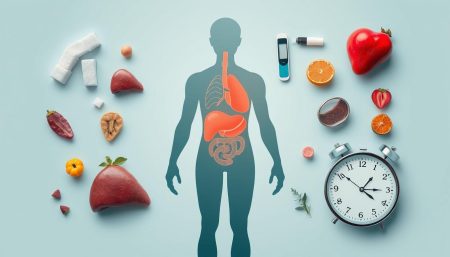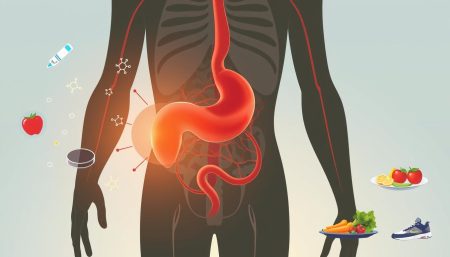Diabetes mellitus is a big challenge in global health. It’s a chronic condition that makes blood sugar levels too high. It affects millions worldwide, impacting both people and health systems.
Managing diabetes is all about keeping blood sugar levels stable. This helps avoid serious complications. It also lets people with diabetes live full, active lives.
The fight against diabetes involves many approaches. Treatments include medicines and changes in lifestyle. Education is also key, teaching patients about their disease and how to manage it.
Patients face many challenges with diabetes mellitus. But healthcare providers aim to help them. They balance strict medical care with giving patients the power to make their own choices.
This is what diabetes care is all about. It’s about paying close attention to each person’s needs. And it’s about giving them hope and support after a tough diagnosis.
What Is Diabetes Mellitus?
Diabetes mellitus is a complex chronic disease with high blood sugar levels. It happens when the body can’t process glucose right. This is because of problems with insulin and pancreatic beta cells.
Defining the Chronic Disease
This chronic disease is all about insulin problems. Insulin is key for controlling blood sugar. There are many types of diabetes, each affecting health in different ways.
Differentiating Between Type 1 and Type 2
Type 1 diabetes is when the body attacks pancreatic beta cells that make insulin. On the other hand, type 2 diabetes is caused by insulin resistance. This means the body can’t use insulin well. Both types raise blood sugar, but they’re treated differently.
Role of Insulin and Pancreatic Beta Cells
Insulin is very important in diabetes. It helps move glucose into cells for energy. The pancreatic beta cells make insulin. If these cells don’t work right, not enough insulin is made, leading to diabetes.
The Epidemiology of Diabetes Mellitus
Diabetes mellitus is growing worldwide, making it a big health issue. It’s important to study it deeply to find ways to prevent it and treat it better.
Studies show how diabetes affects people in different places. They reveal patterns that help shape future health care plans. These patterns show how age, ethnicity, and money status play a big role in who gets diabetes.
This means we need to tailor health care to meet these needs. It’s about making health care fit the people it serves.
| Region | Prevalence (%) | Diabetic Complications |
|---|---|---|
| North America | 10.5 | Cardiovascular diseases, neuropathy |
| Western Europe | 6.8 | Nephropathy, retinopathy |
| Asia-Pacific | 9.2 | Heart conditions, diabetic foot issues |
| Sub-Saharan Africa | 4.7 | Hypertension, infectious diseases |
| Latin America | 8.0 | Peripheral artery disease, stroke |
The numbers show how big of a problem diabetes is worldwide. They also show the different and serious problems it can cause. By focusing on these issues, we can help people with diabetes and ease the load on health care systems everywhere.
Identifying Symptoms of Diabetes Mellitus
Spotting diabetes mellitus early is key to managing it well and avoiding serious problems. Knowing the early signs and what hyperglycemia is helps people get medical help quickly.
Recognizing Early Warning Signs
The first step is to notice the early signs of diabetes mellitus. Common symptoms include:
- Increased thirst and dry mouth
- Frequent urination
- Unexplained weight loss
- Fatigue and feeling unusually tired
- Blurry vision
These signs mean blood sugar levels might be too high, known as hyperglycemia. Spotting these signs early can lead to a quicker diagnosis. This allows for early treatment to control blood sugar.
Understanding Hyperglycemia
Hyperglycemia, or high blood sugar, is a key sign of uncontrolled diabetes mellitus. When the body can’t use insulin well, glucose builds up in the blood. This can cause serious health issues if not treated.
- Diabetic ketoacidosis (DKA)
- Damage to organs such as kidneys, eyes, and blood vessels
- Increased risk of infections
- Potential diabetic coma
Keeping blood sugar levels in check and following treatment plans are vital. It’s not just about easing symptoms. It’s also about avoiding long-term diabetes complications.
Causes and Risk Factors for Diabetes Mellitus
It’s important to know what causes diabetes mellitus to prevent and manage it. Both genetics and lifestyle choices play big roles. They affect when and how diabetes starts and grows.
Genetics and Family History
A family history of diabetes mellitus raises your risk of getting it. Genetics affect how your body makes and uses insulin. This is key for keeping blood sugar levels right. If a close relative has diabetes, getting checked regularly is a good idea.
Lifestyle Contributions to Diabetes
Lifestyle choices are big factors in getting insulin resistance and diabetes. Eating poorly, not moving much, and being overweight are main risks. Changing these habits can lower your diabetes risk a lot.

| Risk Factor | Impact | Preventative Measures |
|---|---|---|
| Poor Diet | Increases body fat, elevating diabetes risk | Adopt a balanced, nutrient-rich diet |
| Inactivity | Lowers metabolic rate, exacerbating insulin resistance | Integrate regular physical activity |
| Obesity | Contributes to chronic inflammation and insulin resistance | Maintain a healthy weight through diet and exercise |
Examining the Role of Insulin Resistance
Insulin resistance is key in the growth of type 2 diabetes. It means the body can’t use insulin well. This leads to high blood sugar levels and health problems if not treated.
At the heart of insulin resistance is the body’s trouble absorbing glucose. This problem raises the risk of type 2 diabetes and obesity. Catching and treating insulin resistance early is vital to stop diabetes.
To understand how insulin resistance leads to type 2 diabetes, here’s a table. It shows how insulin resistance affects blood sugar levels and increases diabetes risk:
| Condition | Insulin Sensitivity | Blood Sugar Levels | Risk of Type 2 Diabetes |
|---|---|---|---|
| Normal | High | Normal | Low |
| Mild Insulin Resistance | Moderate | Elevated | Increased |
| Severe Insulin Resistance | Low | High | Very High |
This table shows how losing insulin sensitivity raises blood sugar levels. It also shows the growing risk of type 2 diabetes. It highlights the need for early health actions to boost insulin sensitivity and fight diabetes.
Complications Stemming from Diabetes Mellitus
Diabetes Mellitus comes with serious complications. It’s important to tackle these to improve health and avoid severe issues.
Diabetic Neuropathy and Its Effects
Diabetic neuropathy is a common diabetes complication. It damages nerves due to high blood sugar, causing numbness, pain, and weakness in hands and feet. Managing blood sugar levels is key to preventing this nerve damage.
Long-Term Health Risks of Diabetes
Diabetes can lead to more than just nerve damage. It can cause heart disease, kidney failure, and vision loss. To avoid these, managing diabetes well and making lifestyle changes are critical.
Below is an overview of the major diabetic complications linked to untreated or poorly managed diabetes mellitus:
| Complication | Effects | Preventive Measures |
|---|---|---|
| Cardiovascular Disease | Increased risk of heart attack and stroke | Regular exercise, healthy diet, blood pressure control |
| Kidney Failure | Need for dialysis or kidney transplantation | Control of blood sugar and blood pressure, medication as necessary |
| Vision Loss | May result in blindness | Regular eye examinations, control of glucose levels |
| Diabetic Neuropathy | Numbness and pain, particular in extremities | Consistent monitoring and management of blood sugar levels |
The Diagnosis Process for Diabetes Mellitus
Finding out if you have diabetes is a key step in managing the disease. Doctors use glucose monitoring tests and A1C levels to make a quick and accurate diagnosis. It’s important for both patients and doctors to understand these steps.
Glucose Monitoring and Testing
Glucose monitoring is a key part of diagnosing diabetes. Doctors use blood tests like the fasting blood sugar test and the oral glucose tolerance test. These tests help find out if your blood sugar levels are too high, which can mean you have diabetes.
Interpreting A1C Levels
The A1C test looks at your blood sugar levels over the past two to three months. Lower A1C levels mean your diabetes is being well-managed. This test is key for checking if your diabetes treatment is working over time.
| A1C Level (%) | What It Might Mean |
|---|---|
| Less than 5.7% | Normal |
| 5.7% to 6.4% | Prediabetes |
| 6.5% or higher | Diabetes |
Diabetes Management: Monitoring Blood Sugar Levels
Keeping blood sugar levels in check is key for diabetes management. Regular glucose monitoring helps people quickly respond to changes in their blood sugar. This can prevent dangerous highs and lows.
For those with diabetes, checking blood glucose regularly gives a clear picture of their health. This data is essential for adjusting diet, exercise, and medication. Also, new continuous glucose monitoring systems have changed the game by showing glucose trends over time.
Key strategies for managing diabetes include:
- Using advanced glucose monitoring devices for accurate readings.
- Having regular health check-ups to match self-monitoring data with medical findings.
- Changing lifestyle habits based on glucose readings to stay healthy.
Glucose monitoring is a top tool for diabetes management. It lets people make smart choices, lowering risks from bad glucose control. Check out the table below to see how different monitoring tools stack up:
| Monitoring Tool | Features | Benefit |
|---|---|---|
| Standard Blood Glucose Meter | Portable, requires manual testing | Immediate feedback, cost-effective |
| Continuous Glucose Monitor (CGM) | Wearable, automatic readings | Real-time data, trends analysis |
| Flash Glucose Monitor (FGM) | Wearable, scan for readings | Less invasive, quick glucose status |
From simple meters to advanced wearables, there are many ways to monitor blood sugar levels. These options fit different lifestyles and needs, helping everyone manage their diabetes well. With new tech coming out, glucose monitoring is more important than ever in diabetes management.
Lifestyle and Diet: Cornerstones of Diabetes Control
Managing diabetes is more than just taking medicine. It’s about making big lifestyle changes that really help control blood sugar. Eating right and staying active are key to keeping diabetes in check and staying healthy.
Creating a Balanced Diabetic Diet
A good diabetic diet is vital for keeping blood sugar stable. It’s all about eating foods rich in nutrients, watching carbs, and cutting down on fats and calories. Eating whole grains, lean proteins, healthy fats, and lots of fruits and veggies helps control blood sugar and boosts health.
- Whole grains like quinoa and barley
- Lean proteins such as chicken breast and tofu
- Healthy fats from sources like avocados and olive oil
- Fresh vegetables and fruits to ensure fiber intake
Physical Activity’s Impact on Blood Glucose
Regular exercise is a big part of managing diabetes. It makes your body more responsive to insulin and helps control blood sugar. Activities like brisk walking, cycling, and swimming not only lower blood sugar but also improve heart health and help with weight.
Adding physical activity to your daily routine does more than just help with blood sugar. It leads to better overall health and well-being.
By making these lifestyle changes, you can greatly reduce the risk of diabetes complications. It also improves the quality of life for those living with diabetes.
Medical Treatments and Interventions for Diabetes
Managing diabetes well means making lifestyle changes and using medical treatments. Insulin therapy and other diabetes medications are key for controlling blood sugar. Knowing about these treatments helps people with diabetes live healthier lives.
Insulin Therapy Explained
Insulin therapy is vital for those with Type 1 diabetes. It replaces insulin their bodies can’t make enough of. It’s also used in Type 2 diabetes when diet and pills aren’t enough.
There are different types of insulin, like rapid-acting and long-acting. Each type is chosen based on what a patient needs. This ensures the right amount of insulin is released at the right time.
Medications to Manage Blood Sugar
Other than insulin, there are many diabetes medications. Metformin, for example, lowers liver glucose and makes insulin work better. Sulfonylureas increase insulin from the pancreas.
These medicines are important for keeping blood sugar stable. They help manage diabetes effectively.
Every treatment plan is made just for the person. It considers their health history, blood sugar, and goals. New medicines and insulin therapy options improve care. This makes life better for those with diabetes.
Technological Advances in Diabetes Care
The world of diabetes care is changing fast thanks to technological advances. These changes make managing diabetes easier and more effective. Smart insulin pumps and continuous glucose monitoring systems are big steps forward.
The artificial pancreas is a big leap. It automatically adjusts insulin levels based on glucose data. This makes managing diabetes much easier for people.
New tech makes managing diabetes more accurate and convenient. For example, real-time data helps doctors make better treatment plans. This leads to better health and a better life for patients.
There’s always more research and development in this field. This means even better diabetes care is on the horizon. These technologies help patients take charge of their health.
| Technology | Description | Impact on Diabetes Management |
|---|---|---|
| Smart Insulin Pumps | Automated insulin delivery in response to glucose levels. | Reduces the necessity for manual blood sugar monitoring and insulin administration, increasing accuracy and consistency. |
| Continuous Glucose Monitors (CGMs) | Provide real-time insights into glucose levels throughout the day without the need for finger-pricking. | Enhances blood sugar control and allows for timely intervention, minimizing the risk of high or low blood sugar. |
| Artificial Pancreas Systems | A combination of insulin pumps and CGMs controlled by sophisticated algorithms. | Mimics the biological pancreas function, drastically improving life quality and decreasing health complications. |
The mix of technological advances and better patient education is exciting. It promises a brighter future for diabetes management. This future looks to make life with diabetes much easier.
Patient Education and Support for Diabetic Individuals
Teaching patients about their diabetes is key to managing the condition. By combining patient education, diabetes support, self-care strategies, and community support, we make everyday challenges easier. This approach helps people live well with diabetes.
Self-Care Strategies for Everyday Management
Good self-care is essential for diabetics to stay healthy. It includes regular blood sugar checks, following medication plans, and knowing when blood sugar is too high or too low. By sticking to these habits, people can manage their diabetes better.
- Regular glucose testing to keep track of blood sugar levels
- Strict adherence to medication schedules to prevent complications
- Educational programs to recognize symptoms of glucose fluctuations
The Importance of Community and Support Groups
Community support is just as important as self-care. Support groups let people share their experiences and learn from others. They offer emotional and practical help, making living with diabetes easier.
Being part of a community also helps with the emotional side of diabetes. It connects people with others facing the same challenges. This creates a sense of belonging and understanding.
| Benefits of Community Support | Examples of Support Activities |
|---|---|
| Enhanced emotional support | Weekly group meetings |
| Shared practical advice | Workshops on diet management |
| Increased motivation | Group exercise sessions |

Preparing for the Future: Prevention and Research
To fight the growing diabetes problem, diabetes prevention is key. It focuses on helping people at risk through lifestyle changes and education. The goal is to stop diabetes before it starts and give people the tools to prevent it.
Community programs and personalized care are becoming more common. They show a strong effort to fight this chronic disease.
Diabetes research is uncovering new ways to understand and treat the disease. It’s working towards better management and even a cure. Studies in genetics and immunology are making progress, aiming for treatments that fit each person’s needs.
Looking ahead, the future of diabetes care looks promising. Genetics could lead to personalized medicine, where treatments are made just for you. New medicines and technologies are also on the horizon. They aim to improve glucose control and make managing diabetes easier.
These advancements give hope for a future without diabetes. They show that progress is being made towards a healthier world.
FAQ
Q: What causes diabetes mellitus?
A: Diabetes mellitus happens when there’s too much glucose in the blood. Type 1 diabetes is when the immune system attacks insulin-making cells. Type 2 diabetes is often due to insulin resistance, where cells don’t use insulin well. Lifestyle and genetics also play a part.
Q: How is diabetes mellitus treated?
A: Treatment for diabetes mellitus includes managing blood sugar levels. This is done through medications, insulin, diet, exercise, and glucose monitoring. Learning about the disease is also key to preventing complications and improving quality of life.
Q: What are the differences between type 1 and type 2 diabetes?
A: Type 1 diabetes is an autoimmune disease that destroys insulin-making cells. It requires insulin therapy. Type 2 diabetes is about insulin resistance and can be managed with lifestyle changes and medications. Sometimes, insulin is needed later on.
Q: Why are pancreatic beta cells important in diabetes?
A: Pancreatic beta cells make insulin, which controls blood sugar. Without them, diabetes occurs because the body can’t make or use insulin well. This leads to high blood sugar levels.
Q: What public health concerns are associated with diabetes mellitus?
A: Diabetes mellitus is a big health issue worldwide. It causes serious problems, costs a lot in healthcare, and affects certain groups more. This highlights the need for public health actions.
Q: How can early signs of diabetes be recognized?
A: Early signs of diabetes include thirst, urination, fatigue, blurred vision, and unexplained weight loss. Recognizing these signs early can lead to timely treatment.
Q: Can lifestyle changes impact the risk of developing diabetes?
A: Yes, lifestyle changes can greatly reduce the risk of type 2 diabetes. A healthy diet, exercise, and a healthy weight are key. These changes can also help manage blood sugar levels for those already diagnosed.
Q: What is insulin resistance, and how does it relate to type 2 diabetes?
A: Insulin resistance means the body’s cells don’t respond well to insulin. This is a key feature of type 2 diabetes. It’s linked to obesity, a sedentary lifestyle, and metabolic syndrome.
Q: What are the long-term complications associated with diabetes mellitus?
A: Long-term complications of diabetes can affect many organs and systems. These include heart disease, nerve damage, kidney damage, eye problems, and infections. These issues arise from prolonged high blood sugar levels.
Q: How is diabetes diagnosed?
A: Diabetes is diagnosed with several tests that measure blood sugar levels. These include fasting plasma glucose, oral glucose tolerance test, and the A1C test. A diagnosis is made based on test results and symptoms.
Q: What role does glucose monitoring play in diabetes management?
A: Glucose monitoring is vital in managing diabetes. It helps track blood sugar levels and adjust treatment. It prevents short-term and long-term complications.
Q: What constitutes a balanced diabetic diet?
A: A balanced diabetic diet includes a variety of nutrients and is low in fat and calories. It has moderate carbs, lean proteins, healthy fats, and lots of fruits and vegetables. Meal planning focuses on controlling blood sugar and overall health.
Q: How does physical activity affect blood glucose levels?
A: Exercise lowers blood glucose levels by improving insulin sensitivity and helping muscles absorb glucose. Regular exercise is good for weight management, heart health, and overall well-being, which benefits those with diabetes.
Q: What medications and interventions are available for diabetes management?
A: Many medications and interventions manage diabetes. Type 1 and some type 2 patients need insulin. Oral medications like metformin and GLP-1 receptor agonists help type 2 diabetes. Adjustments are made based on individual needs for effective management.
Q: How have technological advances impacted diabetes care?
A: Advances in technology have greatly improved diabetes care. They offer precise glucose monitoring, convenient insulin delivery, and data tracking. Continuous glucose monitoring systems and smart insulin pumps help manage diabetes in real-time. Research on artificial pancreas systems is ongoing.
Q: Why is patient education important for those with diabetes?
A: Patient education helps individuals with diabetes understand their condition and manage blood sugar levels. It teaches them to recognize warning signs, adhere to medications, and make healthy lifestyle choices. Education and support are key for successful self-management and better health outcomes.
Q: What does the future of diabetes prevention and research look like?
A: The future of diabetes prevention and research includes identifying at-risk individuals and applying early interventions. It focuses on understanding the disease better and developing new therapies. Advances in technology and personalized medicine will also play a big role in future care.


















